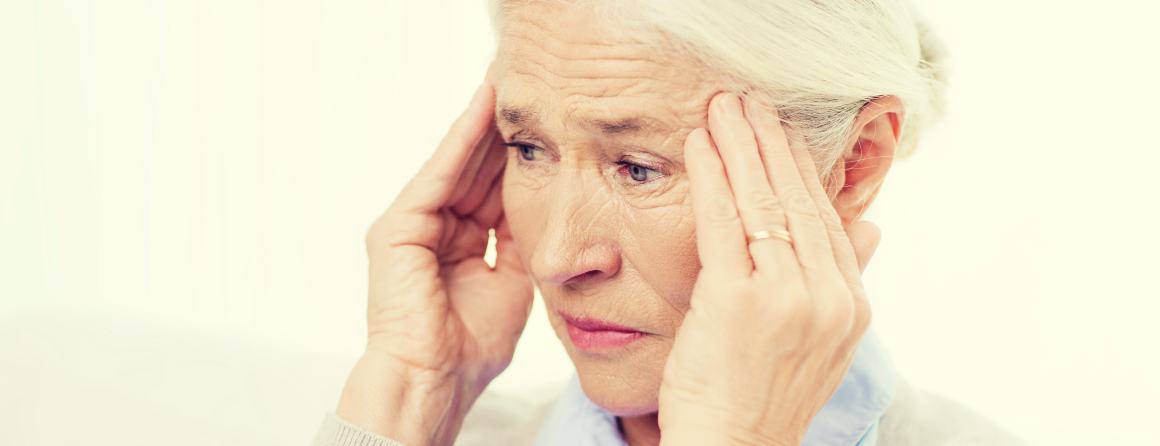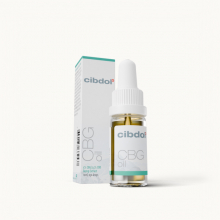Does CBG oil help with paranoia?
Published:
Feelings of extreme distrust, fear and anxiety known as paranoia can be both scary and disruptive. Paranoia is not a condition itself, but rather a symptom of other mental health disorders like schizophrenia, delusional disorder, dementia or drug-induced psychosis. While antipsychotic medications are typically used, some research indicates the cannabis compound CBG may also help certain types of paranoia.
Contents:
- What is Paranoia and What Causes It?
- Current Treatments for Paranoia
- What is CBG Oil?
- Can CBG Oil Reduce Paranoia?
- Potential Benefits of CBG Oil for Paranoia
- Risks and Considerations of Using CBG Oil
- How to Take CBG Oil for Paranoia
- Lifestyle Changes That May Also Help Paranoia
- Fact Section
- Does CBG oil help with paranoia? Conclusion
- Resources used to write this article
This article will explore the potential benefits and risks of using CBG oil for paranoia symptoms.

What is Paranoia and What Causes It?
Paranoia involves intense, irrational suspiciousness and mistrust of others. People experiencing paranoia may believe others are trying to harm or deceive them. Paranoid thoughts are often delusional, meaning they persist despite lack of evidence and resist reason.
Some common paranoid delusions include:
- Believing people are spying on or following you
- Thinking there are hidden threatening messages in unrelated events
- Feeling your thoughts are being monitored or controlled
- Suspecting friends/family are plotting against you
These distorted thoughts cause significant distress and impairment in daily functioning.
While many conditions can involve paranoia, some top causes include:
- Schizophrenia - Hallucinations and delusions are characteristic of schizophrenia. Paranoia is one of the most common delusional symptoms.
- Delusional Disorder - This condition is characterized by at least one delusional belief that persists for more than one month. Paranoia is the most frequent theme.
- Drug-induced Psychosis - Psychoactive drugs like methamphetamine, cocaine and excessive marijuana use can trigger paranoid thoughts lasting even after drug discontinuation.
- Dementia - Alzheimer’s, Lewy body and other dementias can trigger suspiciousness, hallucinations and delusions in later stages.
- Severe Stress/Trauma - While not a mental illness itself, periods of severe traumatic stress can also lead to brief reactive paranoid thoughts.
So in summary, while paranoia has many causes, psychotic disorders involving delusions and hallucinations are the most common culprits.
Current Treatments for Paranoia
Treatment for paranoia focuses on addressing the underlying condition causing it. Common medical interventions include:
Antipsychotic Medications
Typical or atypical antipsychotics like haloperidol, risperidone, olanzapine and quetiapine are routinely used to reduce paranoid delusions. They block dopamine receptors in the brain associated with psychosis.
Psychotherapy
Talk therapy approaches like cognitive behavioral therapy help patients recognize paranoid thoughts as irrational and develop coping strategies. Group therapy also provides support.
Social Skills Training
Learning communication and relationship skills can help paranoid individuals properly interpret social cues and normalize social interactions.
Hospitalization
In severe cases with safety risks, temporary hospitalization may be required for close supervision, structured care and medication adjustments.
However, current treatments for paranoia have limitations:
- Antipsychotics have side effects like weight gain, tremors, and emotional numbness
- Therapy is time-intensive and results can vary
- Hospitalization is expensive and disruptive for the patient
This has prompted interest in exploring complementary approaches like CBG oil.
What is CBG Oil?
CBG stands for cannabigerol, a non-psychoactive compound found in hemp and cannabis plants.
CBG works differently than CBD and THC, interacting with receptors like:
- Serotonin 5-HT1A - influences mood and cognition
- Alpha-2 adrenoceptor - regulates norepinephrine for stress
- TRPV1 and 2 - impacts pain perception
Early research shows CBG has properties as:
- An anti-inflammatory agent
- Pain reliever
- Neuroprotectant
- Antimicrobial
CBG oil refers to concentrated hemp extracts containing high levels of CBG. It can be taken under the tongue or incorporated into edibles, topicals and other products.
Now let’s explore what the current research says about using CBG oil for paranoia symptoms specifically.
Can CBG Oil Reduce Paranoia?
There is very limited direct research on CBG for paranoia at this time. However, some early studies suggest CBG may help via:
Alleviating underlying conditions related to paranoia
- Research indicates CBG may have anti-inflammatory, neuroprotective and analgesic effects. This suggests it could help address neurological conditions like schizophrenia and dementia.
- CBG also modulates serotonin receptors to improve mood and stress, which could benefit trauma/stress-induced paranoia.
Interacting with cannabinoid receptors
- Unlike THC, CBG has low affinity for CB1 receptors associated with cannabis-induced paranoia. This may make it less likely to worsen paranoid thoughts.
- Activating CB2 receptors may reduce neuroinflammation linked to psychiatric disorders with paranoid symptoms.
Regulating neurotransmitters
- CBG blocks serotonin 5-HT2A receptors, which antipsychotics target to reduce hallucinations and delusions.
- CBG activating 5-HT1A receptors may boost serotonin levels, relieving depression and anxiety.
- Interacting with alpha-2 adrenoceptors can lower excess norepinephrine related to stress.
So in theory, by addressing underlying conditions, altering receptor activity and regulating neurotransmitters, CBG may help relieve paranoia in certain cases. But clinical studies are still needed.
Potential Benefits of CBG Oil for Paranoia
Based on limited early research and anecdotal reports, possible benefits of CBG oil for paranoia may include:
- Reducing delusional thinking and suspicion associated with psychiatric disorders
- Lessening anxiety and depression that often accompany paranoia
- Improving focus and cognition impaired by neurological conditions
- Decreasing inflammation and oxidative stress linked to paranoid symptoms
- Boosting overall mental clarity and emotional stability
- Fewer side effects than antipsychotic medications
- Increased social functioning and quality of life
Again, large scale studies are not yet available on CBG for paranoia specifically. But initial findings are promising.
For some patients, CBG oil may be a helpful complementary approach used carefully in conjunction with standard treatments under medical supervision.
Risks and Considerations of Using CBG Oil
However, there are some important risks and considerations when using CBG oil:
- CBG oil can interact with certain medications like blood thinners and psychiatric drugs. It should only be used with medical guidance.
- CBG may inhibit CYP3A4 enzymes which metabolize many drugs. This could increase medication levels to toxic ranges.
- Starting slowly and monitoring for side effects is essential as research is still limited on CBG oil’s effects.
- CBG oil should not replace proven conventional treatments. It may be best as an adjunctive therapy.
- Those with bipolar disorder and schizophrenia may need to avoid THC-versions of CBG oil due to psychosis risks.
- CBG oil may potentially worsen symptoms of paranoia in some individuals, especially at high doses.
Using any form of cannabis can carry risks. Patients with paranoid symptoms should thoroughly discuss potential benefits and drawbacks of CBG oil with their psychiatrist or doctor.
How to Take CBG Oil for Paranoia
If you and your doctor decide CBG oil is worth trying, some tips on usage include:
- Consult your doctor on an appropriate starting dose and timing. Don’t exceed recommended amounts.
- Choose a high quality CBG oil from a reputable source and check third-party lab test results.
- Take detailed notes on the effects to share with your doctor so the regimen can be adjusted as needed.
- Start with a very low dose of around 2-5 mg CBG once or twice daily and increase slowly over several weeks if tolerated.
- Take CBG oil consistently rather than sporadically to allow time for benefits to develop.
- Avoid THC-containing products if you have a history of cannabis-induced psychosis or schizophrenia.
Patient responses vary substantially. Finding the right CBG oil regimen requires patience, close monitoring and guidance from a doctor or psychiatrist experienced with cannabinoid therapies.
Lifestyle Changes That May Also Help Paranoia
While more research is still needed, some lifestyle changes and coping strategies may help reduce troubling paranoid thoughts:
- Avoiding recreational drugs and limiting alcohol intake
- Managing stress through relaxation techniques, therapy, exercise, etc.
- Getting regular quality sleep and a healthy diet
- Joining a support group to reduce isolation and normalize experiences
- Reality-testing paranoid thoughts logically when they arise
- Distracting yourself with outdoor walks, hobbies or being with pets
- Carrying antianxiety medication like benzodiazepines for acute episodes
- Practicing mindfulness and grounding techniques to manage worries
Making positive lifestyle modifications alongside conventional treatments and potentially CBG oil may help maximize improvements in paranoid symptoms.
Fact Section
Here are some important facts to know about paranoia and CBG oil:
- Paranoia involves irrational suspicions and mistrust of others
- It is not a standalone disorder but a symptom of conditions like schizophrenia and delusional disorders
- Antipsychotics, psychotherapy and hospitalization are conventional treatments
- However, these approaches have limitations including side effects and variable efficacy
- CBG is a non-intoxicating compound in cannabis that interacts with receptors involved in psychosis
- Limited research suggests CBG oil may help certain types of paranoia by reducing inflammation, regulating neurotransmitters and improving cognition
- Potential benefits include lowering delusions, anxiety and depression associated with paranoia
- Risks include medication interactions and possibly worsening paranoia in some cases
- If used, CBG oil should only be taken under medical supervision at low doses and increased gradually
- Lifestyle approaches like therapy, stress management and group support should also be utilized
- More large-scale human studies are still needed to confirm the efficacy and safety of CBG oil for paranoia
Does CBG oil help with paranoia? Conclusion
In summary, paranoia is a troubling symptom that arises from psychiatric disorders like schizophrenia and delusional disorder. Conventional treatments with antipsychotics, psychotherapy and hospitalization have varying degrees of efficacy and risks. Some early research suggests the cannabis compound CBG may have anti-inflammatory, neuroprotective and mood-regulating properties. This indicates CBG oil preparations may help relieve certain types of paranoia by reducing inflammation, regulating neurotransmitter levels, and improving cognition.
Potential benefits include lowering delusions, anxiety and depression associated with paranoia. However, risks like medication interactions and uncertain long-term safety also exist. Those suffering from paranoia should work closely with medical professionals to determine if a supervised trial of CBG oil could be beneficial as an adjunctive treatment. Combining CBG oil with lifestyle approaches may also optimize outcomes. More large-scale human research on CBG oil for paranoia is still needed. But preliminary findings are promising for specific cases under medical guidance.
Resources used to write this article
For an overview of paranoia symptoms and causes:
- Freeman, D., & Garety, P.A. (2014). Advances in understanding and treating persecutory delusions: a review. Social psychiatry and psychiatric epidemiology, 49(8), 1179–1189. https://doi.org/10.1007/s00127-014-0928-7
- American Psychiatric Association. (2013). Diagnostic and statistical manual of mental disorders (5th ed.). https://doi.org/10.1176/appi.books.9780890425596
For conventional paranoia treatments:
- National Institute of Mental Health. (2016). Schizophrenia. https://www.nimh.nih.gov/health/topics/schizophrenia
- Mayo Clinic. (2019). Paranoia. https://www.mayoclinic.org/diseases-conditions/paranoia/diagnosis-treatment/drc-20376202
For information on CBG and its mechanisms:
- Borrelli, F., Fasolino, I., Romano, B., Capasso, R., Maiello, F., Coppola, D., Orlando, P., Battista, G., Pagano, E., Di Marzo, V., & Izzo, A. A. (2013). Beneficial effect of the non-psychotropic plant cannabinoid cannabigerol on experimental inflammatory bowel disease. Biochemical pharmacology, 85(9), 1306–1316. https://doi.org/10.1016/j.bcp.2013.01.017
- Natural Medicine Journal. (2018). Cannabigerol: A Major Non-Psychotropic Cannabis Compound with Potential Therapeutic Utility. https://www.naturalmedicinejournal.com/journal/2018-09/cannabigerol-major-non-psychotropic-cannabis-compound-potential-therapeutic-utility
For studies on CBG and psychiatric/neurological conditions:
- Morales, P., Hurst, D. P., & Reggio, P. H. (2017). Molecular Targets of the Phytocannabinoids: A Complex Picture. Progress in the chemistry of organic natural products, 103, 103–131. https://doi.org/10.1007/978-3-319-45541-9_4
- Pucci, M., Rapino, C., Di Francesco, A., Dainese, E., D'Addario, C., & Maccarrone, M. (2013). Epigenetic control of skin differentiation genes by phytocannabinoids. British Journal of Pharmacology, 170(3), 581-591. https://doi.org/10.1111/bph.12309















